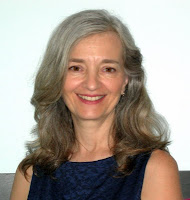 |
| Martha Edwards, Director of the Center for Developing Child and Family |
The Center for the Developing Child and Family supports the development of children and their families at home and at school. The Center has several projects such as Bright Beginnings, Personal Best, Resilient Families: Children with Special Needs, and Competent Kids Caring Communities, to help meet the needs of families with children. Recently, several of these projects have received grants to expand their programs throughout the city. In the following interview, Founder and Director of the Center, Martha Edwards discusses the recent accomplishments and impact of the Center’s work.
You have a lot going on – working with families with very young children, implementing a program in the New York City public schools, creating a new project for families with special needs children. Can you tell us about these three areas of your work?
It’s very exciting because we just received two new grants — one for our work in the schools and a second to work with teen mothers. Our third program – for special needs children and their families – is looking for additional funding.
Let’s start with the recent recognition and grant that the Competent Kids, Caring Communities program received.
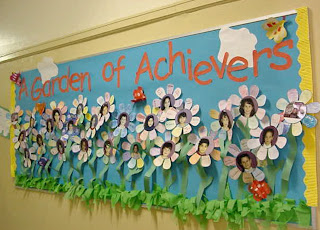 |
| Garden of Achievers from Competent Kids, Caring Communities |
The exciting news is that, on the basis of a controlled study we conducted, Competent Kids, Caring Communities was carefully reviewed by the Collaborative for Academic, Social and Emotional Learning (CASEL) and designated as a “well-designed, high quality, and evidence-based” program for teaching social emotional skills in schools. CASEL is a well-known and highly respected organization, so this is a major recognition within the field. We just heard that on the basis of this recognition, we were awarded a $100,000 grant from the NoVo Foundation to support our “scaling up” so that we can increase the number of schools CKCC can reach.
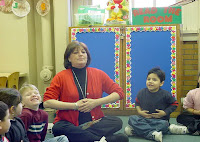 |
| Teacher doing deep breathing exercises with students |
Competent Kids, Caring Communities (CKCC) promotes students’ success in school by helping them develop key social and emotional skills and to connect families to their children’s learning, both of which are key to children’s success in school and in life. We do this by going into schools and providing tools and training to teachers and staff, who are then able to foster student learning while also more directly involving parents. Teachers conduct weekly lessons so that children can develop skills like self awareness, problem solving, and conflict resolution. In doing so, both their behavior and academic performance improve, and ultimately, they become better citizens of the world.
This recognition and grant come at a perfect time. In July, Tynisha Wynder joined CKCC Director Zina Rutkin and faculty members Fran Schwartz and Irma Mazan as the program’s full-time Coordinator and will be a major force in shepherding CKCC’s expansion.
Center Associate Director, Judy Grossman, started the Special Needs Project this year. What has her group been focused on?
Working with Center faculty Sara Goldsmith, the team (comprised of Ackerman graduates) spent the first half of the year as a learning community, augmenting their family therapy skills with additional information about developmental disabilities, brain research, different therapeutic approaches, and the special education process. The project then began to take referrals and see families through the Ackerman Treatment Center who have children with autism, ADHD and other special needs. This year we are expanding to include: (1) A discussion group for parents with special needs children; (2) staff development workshops at schools and community agencies so they can implement family-centered practices with special needs children; and (3) training and co-leading parent discussion groups in schools so their staff can offer this service to their families. We are looking for additional funding so that we can offer these services to as many families as possible.
What is happening with your parenting programs for families with young children: Bright Beginnings and Personal Best?
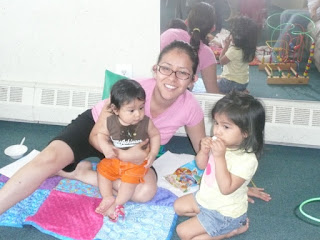 |
| Mother participating in Bright Beginnings with her 2 children |
Bright Beginnings is a parenting intervention for families with infants and toddlers. There are several components: (1) a group for parents with their children that includes discussion and parent-child activities; (2) home visits that reinforce and individualize what the parents and children did in the groups; and (3) a video component where the parent and professional watch a video of the parent interacting with the child to identify both the unique characteristics and the strengths in the relationship and to encourage parental reflection about what their children needs from them.
Personal Best is a 16-week group intervention for parents (without their children). Based on principles of adult development, it is designed to help parents improve their coping, communication and problem solving skills and also support them in their multiple roles as parent, partner, worker, and community member.
Although Bright Beginnings and Personal Best are “stand alone” manualized curricula, we think that parents really benefit from participating in both. We are doing that in three Early Head Start Programs in Manhattan, the Bronx, and Queens and in one community agency in Brooklyn. We have trained approximately 50 staff in these agencies to implement an integrated version of Bright Beginnings and Personal Best in which over 700 families have participated. Groups are conducted in English, Spanish, and three Chinese dialects and all of the parent materials have been translated into Spanish and Chinese. Center faculty Barbara Russek and Yolanda Martinez are taking the lead on implementing our revised video feedback and home visiting components.
The Bright Beginnings and Personal Best programs have been funded by the Robin Hood Foundation for multiple years and just received new grants from two other foundations. Can you tell us a little bit about how these will be used?
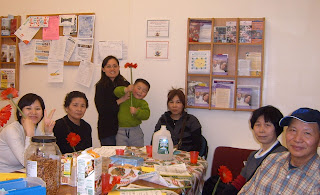 |
| Family involved in the Personal Best Program |
Last year the Shoolman Foundation awarded us a one-year grant to work with two residential programs for teen mothers in foster care. With Center faculty Chris Reynolds and Sabina Fila as consultants, we have implemented Bright Beginnings and Personal Best at New York Foundling in Manhattan and Leake and Watts in the Bronx. Not only are we training the staff how to run the Bright Beginnings and Personal Best groups, we are working with the staff to take the principles from each curricula into their day-to-day interactions with the young mothers. For example, if one of the goals for the young mothers is to help them be more patient with their children, how can the staff model patience in their relationship with the mothers? We have found that much of the way we influence parenting is by a parallel process which means developing a relationship between staff and parent with the same qualities that we are looking to help parents develop with their children. These include, for example, attunement, mutual respect, encouragement, and support.
As a result of hearing about our work with teen mothers in these residential programs, New York’s ACS Commissioner, Ron Richter, asked us to expand our reach to include teen mothers living in foster homes. We currently have a planning grant from New Yorkers for Children Foundation to conduct a series of focus groups with teen mothers, foster parents, home finders, and case planners as well as interviews with agencies across the city to assess what teen parents in foster care need to make a successful transition into adulthood and parenthood and to give their babies a good start in life. Center Administrator, Brenda Nikelsberg, is back from maternity leave and is working with us on organizing all the information we’re collecting so that we can develop a strategic plan for these young mothers and their children.
To learn more about the Center for Developing Child and Family, go to the Ackerman Institute website at: https://www.ackerman.org/